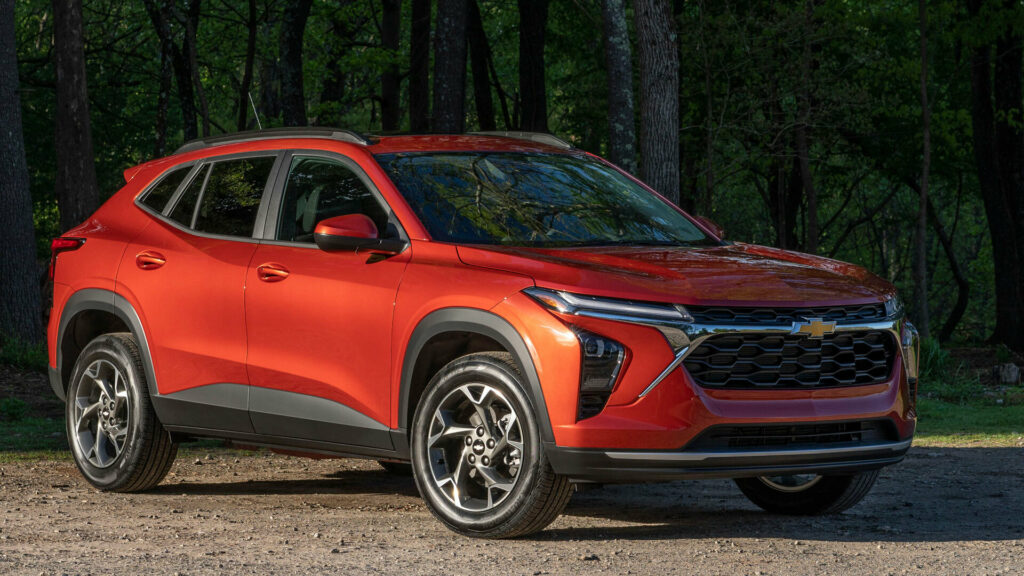- The average American buyer is downsizing as interest rates and fuel costs continue rising.
- Sales of entry-level models rose 23 percent, with compact cars climbing by 16 percent.
- Buyers are moving to economy models, though fewer options under $25,000 remain in 2024.
Whether it be something as simple as upsizing a meal at the McDonald’s checkout or saving up for that home extension, we’re often taught that bigger is better. But thousands of U.S. car buyers appear to be bucking the trend with a shift toward smaller, more affordable vehicles. With car prices on the rise and loan payments spiraling, it seems that many new car buyers are choosing to forego some of the roominess for more compact and economical options.
More: Nearly 20% Of Car Buyers Took On $1,000+ Monthly Payments In Q4
But with the average selling price hitting an all-time high of $47,000, is it really any surprise? With rising expenses, many people are feeling the pinch. The result is a drop in sales figures for most large vehicles. For instance, large pickup truck sales have fallen 1.9 percent this year compared to 2023, and midsize SUVs slid 2.3 percent, according to Edmunds.
Cheaper Models And Compact Cars Surge In 2024
Conversely, smaller car sales have taken off. Entry-level model sales rose by 23 percent, while overall industry growth has remained in the low single digits. Data from Edmunds says that compact car sales rose by 16 percent in November alone, while sub-compact SUV sales have grown by 11.5 percent.
Analysts explain that buyers are willing to make the sacrifice in exchange for cheaper payments. “They need the functionality that the vehicle has, but they just need to buy the smaller size,” said Charles Chesbrough, a senior economist at Cox Automotive, speaking to The Wall Street Journal.

But there are fewer options on offer. In 2025, there were over 45 models on sale in US that were priced under $25,000. Today, there are just 11, with many sedans and hatchbacks meeting their maker. Petrol prices had a hand in this, with years of cheap gas literally fueling the growth of gas-guzzler sales. But things aren’t what they were, and with a new government set to take the reigns, the cost of gas will likely have a bearing on the industry’s direction in the coming years.
Keeping Affordable Options In The Lineup Was Wise
It’s not all bad news, though, especially for the smaller SUV options on offer. While Chevrolet decided to take an axe to most of its sedan car lineup, the entry-level Trax SUV has been making its own kind of killing. According to analysis by Motor Intelligence, budget-conscious buyers are lapping up the small SUV, with Trax sales rocketing by 89 percent in November.
Sadly, not every car maker can say the same, with many companies having jumped on the economy-car killing spree in favor of the higher margins afforded by pricier options. The result is that many dealers are now feeling like they’ve been left in the lurch, without an economy offering.
Will Trump’s Tariffs Kill The Budget Car?
One segment that has managed to buck the trend is that of large SUVs, but that has more to do with buyers not being able to stomach the reduced practicality of a smaller offering. Buyers of this type, primarily families, need the added space that the form factor brings, with analysts saying owners are reluctant to compromise.
Smaller and more affordable options may be winning for the time being, but that may not be the case for long. Incoming President Donald Trump plans to slap 25 percent import duties on goods from across the borders of Mexico and Canada, precisely where many lower-cost models are made.
More: The Number Of Car Buyers Paying Over MSRP Has Plummeted
Although doing so would, according to analysts, add $3,000 to the price of an average new car, severely impacting price-conscious buyers, some, like GM’s CEO Mary Bara believe this could just be a threat on Trump’s end to accomplish his goals. We’ll find soon enough if that’s true – and so, too, will automakers that rely big on cheap imports, including GM, which makes nearly one-third of the cars it sell in the US in Mexico.





